A low light lens for Nikon will give excellent results when shooting the starry sky and other objects at night. The following Nikon lenses are designed in such a way that the camera sensor receives more light due to a faster aperture. All this frees you from buying all kinds of flashes to achieve top quality for your night shots.
This kind of lenses is a must-have when capturing music concerts, city nights, or mesmerizing starry skies being sure you’ll receive sharp outlines of the stars, not patches of light from them. In this case, wide-angle lenses will take precedence. To evaluate the ISO for each lens on this list, I looked at its maximum aperture and the longest available shutter speed without unattractive patches of starlight.
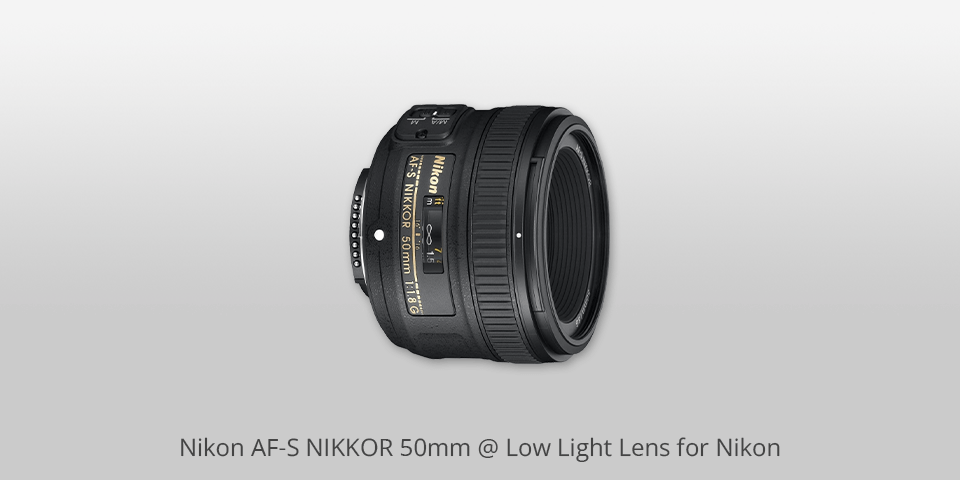
Maximum aperture: f/1.8 | Focal length: 50mm | Focusing distance: 1.48 ft | Angle of view: 47° | Item weight: 6.5 ounces
As one of the most popular lenses for portraits and all types of photography, the AF-S NIKKOR 50mm can let you get eye-catching photos with a shallow depth of field and softly highlighted objects in the background. Its focal length allows you to get a natural perspective.
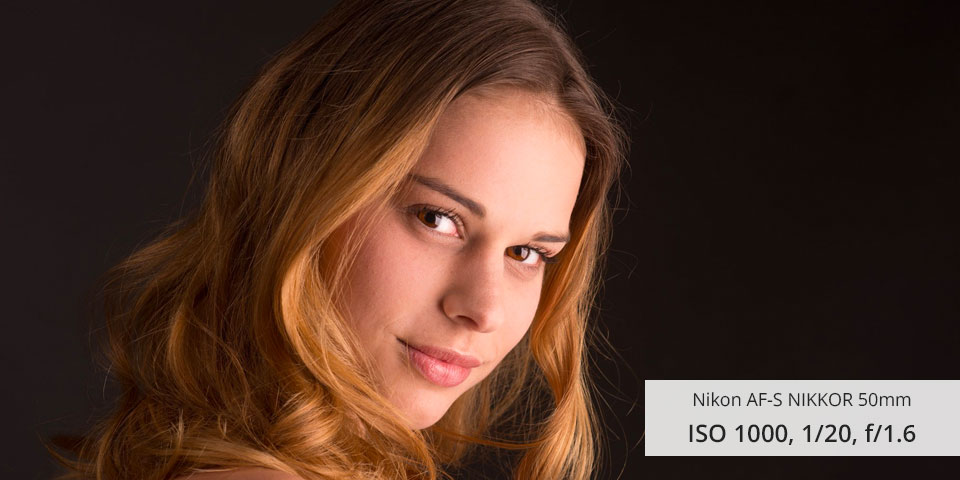
I love how natural and beautiful bokeh I can get with this Nikon 50mm lens by setting it to a wide aperture. What’s more, this applies to any genre. The lens comes with state-of-the-art SWM rotation technology, making the autofocus process more precise, quieter, and faster.
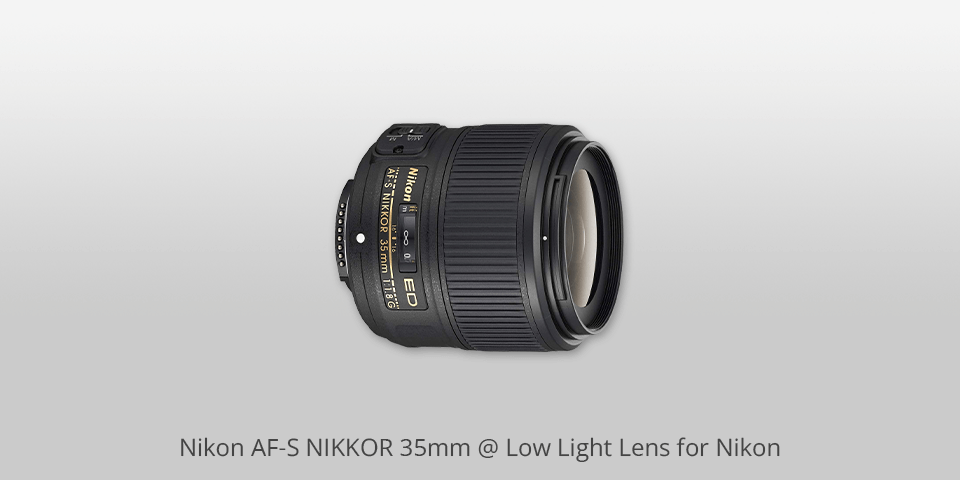
Maximum aperture: f/1.8 | Focal length: 35mm | Focusing distance: 0.98 ft | Angle of view: 44° | Item weight: 10.8 ounces
This representative of Nikon low aperture lenses is perfect for use on FX-format DSLR cameras. It boasts quieter and faster autofocus, achieved through a silent wave motor. Its optical part is assembled from one ED and one aspherical element.
The compatibility between this Nikon lens and the D5600 makes it one of the top choices for Nikon lenses for the D5600 camera.
When paired with the Nikon D5600, this lens takes full advantage of the camera's high pixel count sensor, resulting in breathtakingly sharp and detailed images that will truly mesmerize you.
Whether you're capturing landscapes, portraits, or any other type of photography, this lens guarantees outstanding image quality that will leave a lasting impression.
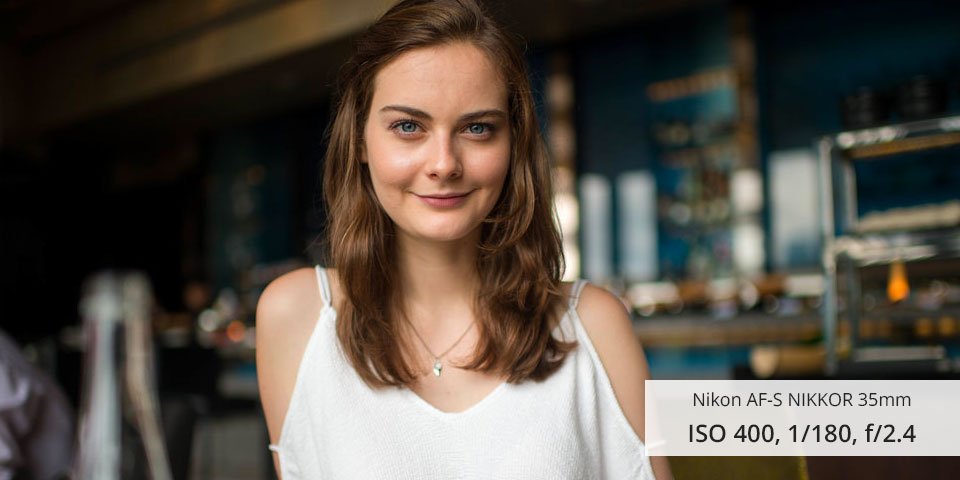
I love that I can have complete control over the depth of field with this lens thanks to its natural perspective with a maximum aperture of f/1.8. Even in the dark, you can easily get vivid and beautiful pictures with naturally blurred backgrounds.
Because the lenses use the aforementioned aspherical (AS) and extra-low dispersion (ED) glass parts, your photos will be free from a sagittal flare at wide apertures. This lens gives you perfectly contrasted images with excellent color reproduction without any defects even in backlit conditions thanks to super-integrated coatings.
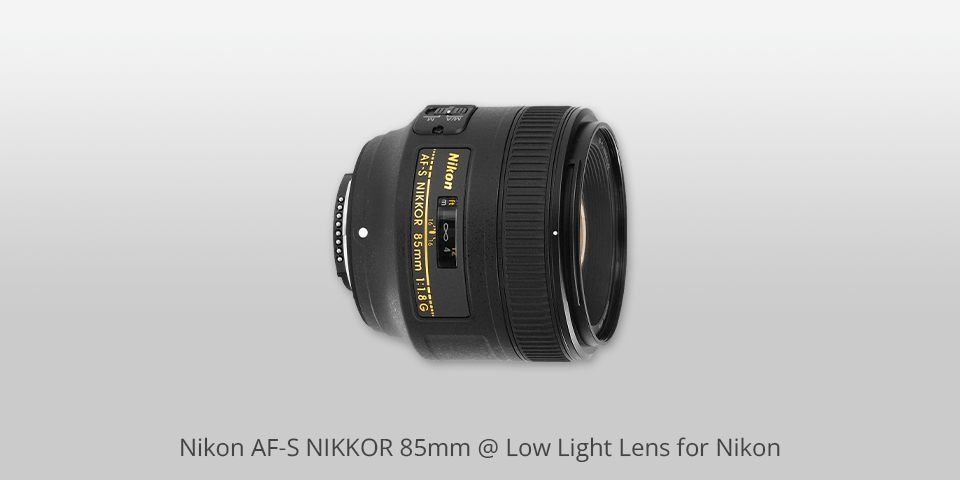
Maximum aperture: f/1.8 | Focal length: 85mm | Focusing distance: 2.62 ft | Angle of view: 21° | Item weight: 12.3 ounces
The AF-S NIKKOR 85 is set to be your best low light lens for Nikon for its excellent build quality and depth of field offering proper isolation of the subject from the background even in the dark. With it, your shots come out vibrant, with rich colors and unsurpassed clarity, softly blurred backgrounds, and natural-looking bokeh. It copes well with low light both indoors and outdoors.
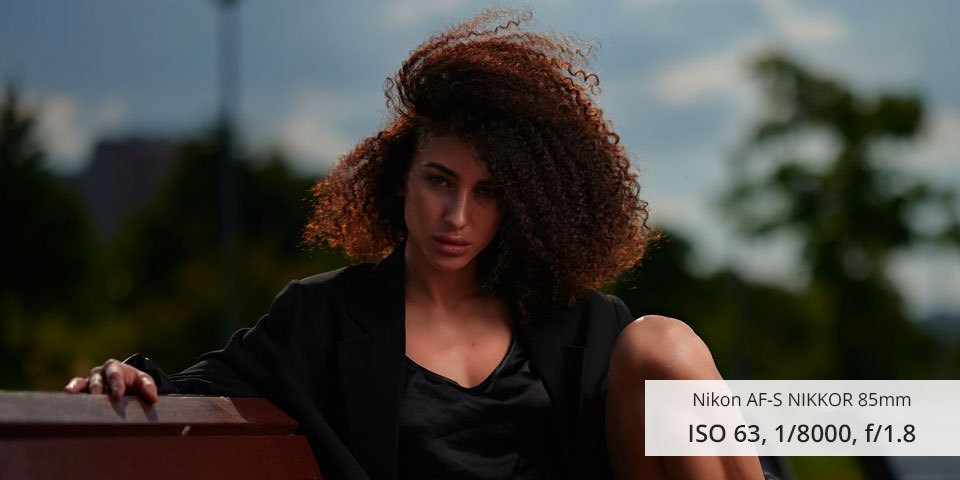
I love that this lens for night photography is also capable of producing great portraits in low light thanks to the fast aperture settings. At the same time, you do not lose the quality, clarity, and details of your photos when shooting in the dark. All of these options give you complete control over where your model or subject is in the frame, whether in dark or good light.
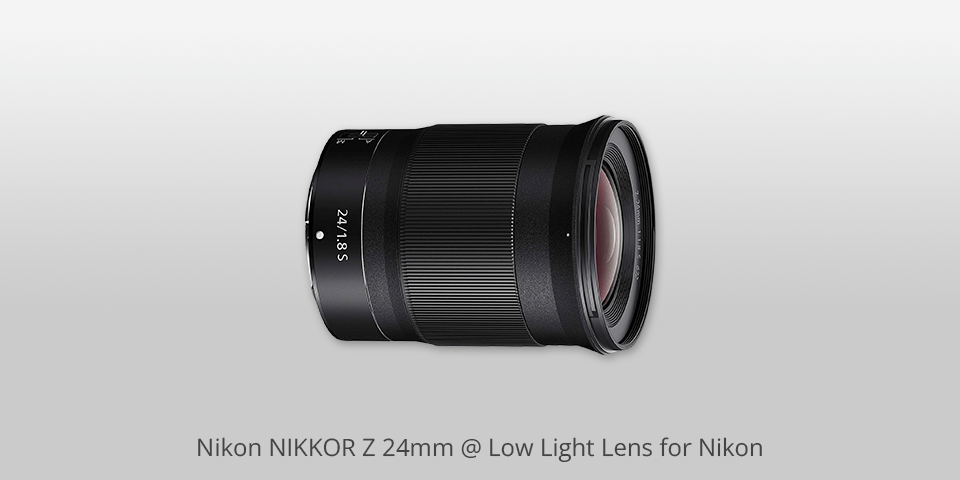
Maximum aperture: f/1.8 | Focal length: 24mm | Focusing distance: 0.82 ft | Angle of view: 84° | Item weight: 15.8 ounces
As a wide-angle lens for Nikon, this device offers you great depth of field and more to be your best Nikon lens for low light. For fans of astrophotography or any other genre in low light conditions, this lens is a must-have.
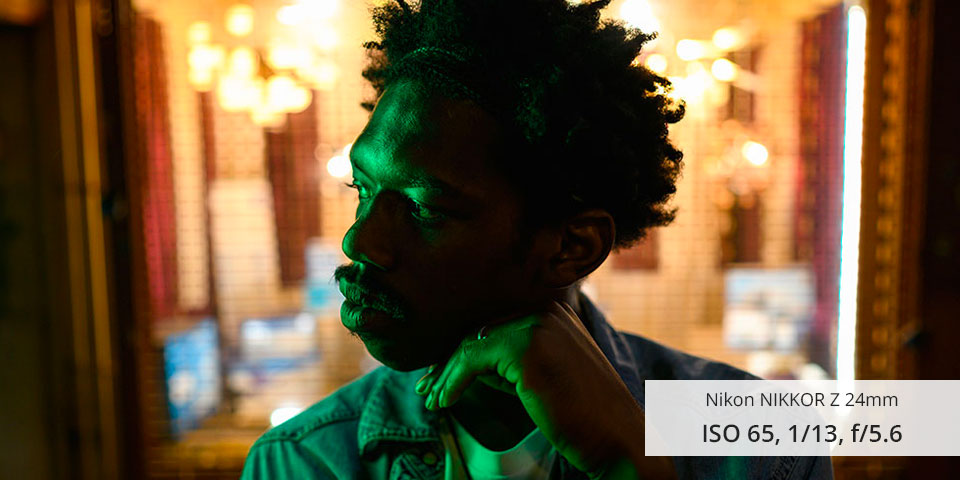
I like that pictures taken outdoors in the dark look natural and beautiful thanks to the edge-to-edge brightness feature. What’s more, you won’t see any unattractive flare or ghosting in your photos due to the anti-reflective features and Nano Crystal Coat of this lens.
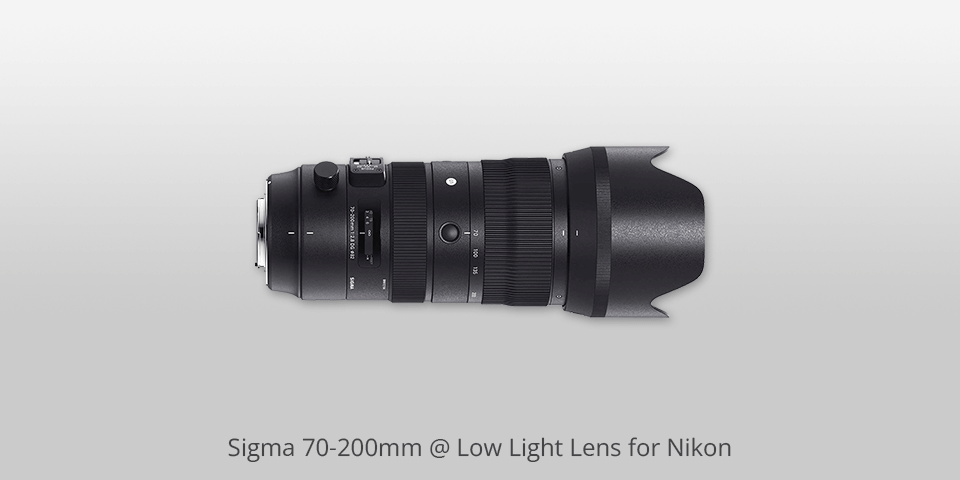
Maximum aperture: f/2.8 | Focal length: 70-200mm | Focusing distance: 3.93 ft | Angle of view: 61° | Item weight: 3.08 pounds
Sigma 24-70mm f/2.8 DG DN Art is versatile due to its wide focal length. Therefore, you can use it for both stills and videos from landscapes to portraits.
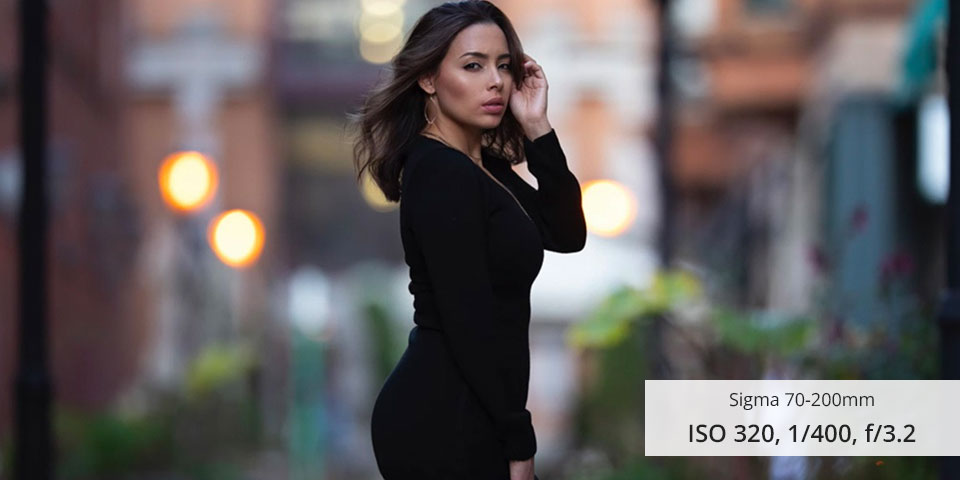
The Sigma lens covers all your shooting needs both outdoors at night and indoors where it’s dark, producing really nice shots with decent range. I like that it comes with fast and accurate autofocus, allowing you to capture even quick movements in the dark and focusing correctly even on close subjects.
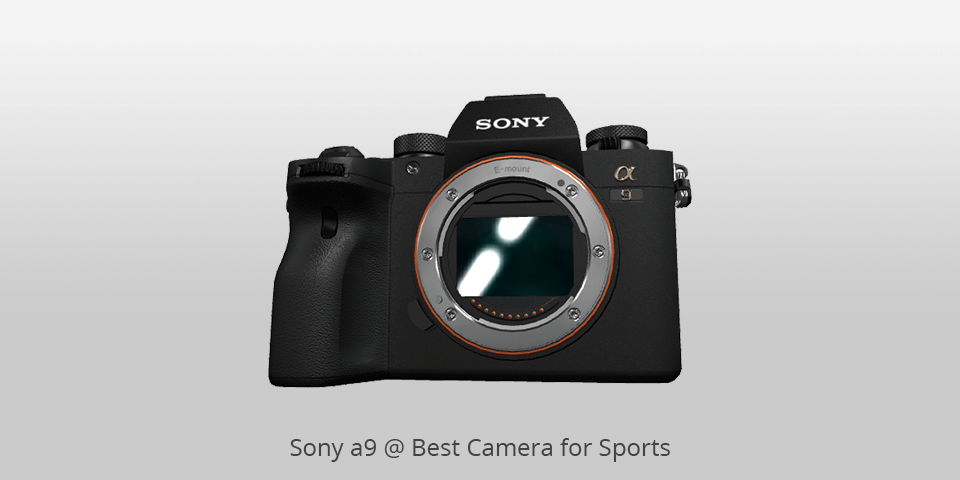
Maximum aperture: f/1.8 | Focal length: 20mm | Focusing distance: 0.66 ft | Angle of view: 94° | Item weight: 12.5 ounces
Another worthy option among Nikon low aperture lenses is the AF-S FX NIKKOR 20mm f/1.8G with its proper aperture that makes shooting in the dark a no-brainer task. I love how this lens captures light exactly the way it is, making your shots incredibly crisp and clear. What’s more, it is suitable for both photo and video shooting at night.
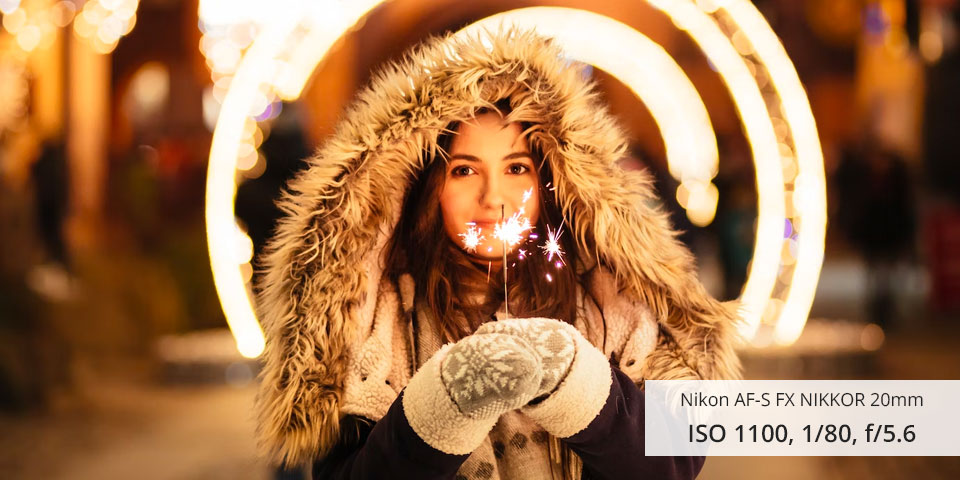
One of its strengths is proper and soft background blur, which will make your subject or model stand out, even in low light. The lens distributes the light evenly throughout the shot, making the edges of your photo as bright as the center of the scene, which is not the case with standard lenses.
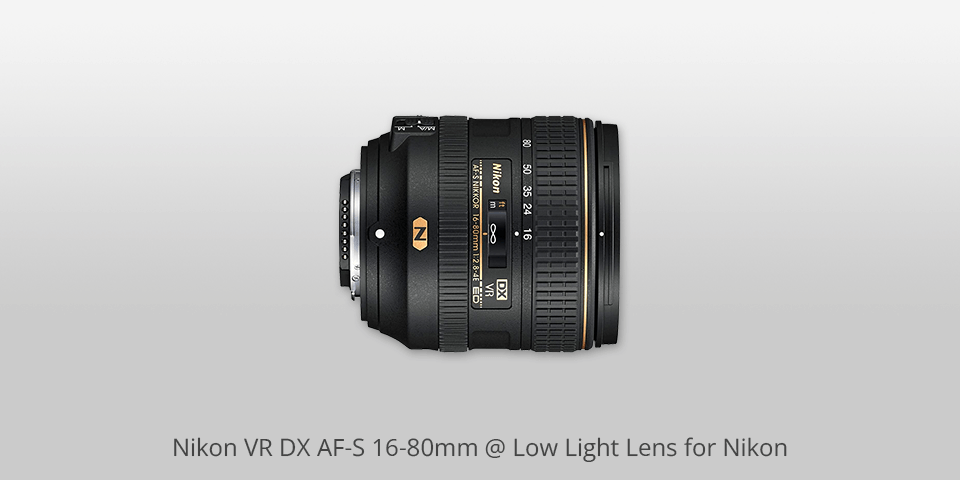
Maximum aperture: f/2.8 | Focal length: 16-80mm | Focusing distance: 0.66 ft | Angle of view: 83° | Item weight: 1.06 pounds
If you’re looking for a lightweight camera accessory that can produce incredibly clear and high-quality photos in the dark, then the Nikon 16-80mm f/2.8-4E VR DX AF-S ED has every chance of becoming your best low light lens for Nikon. Paired with one of the best low light cameras like the Nikon Z6 II, you can capture stunning images even in challenging lighting conditions.
It comes with VR stabilization which will save you from any shake and blur in your pictures taken at night. I like that its aperture is capable of delivering great results in low light, freeing you from having to mount a flash or other light sources.
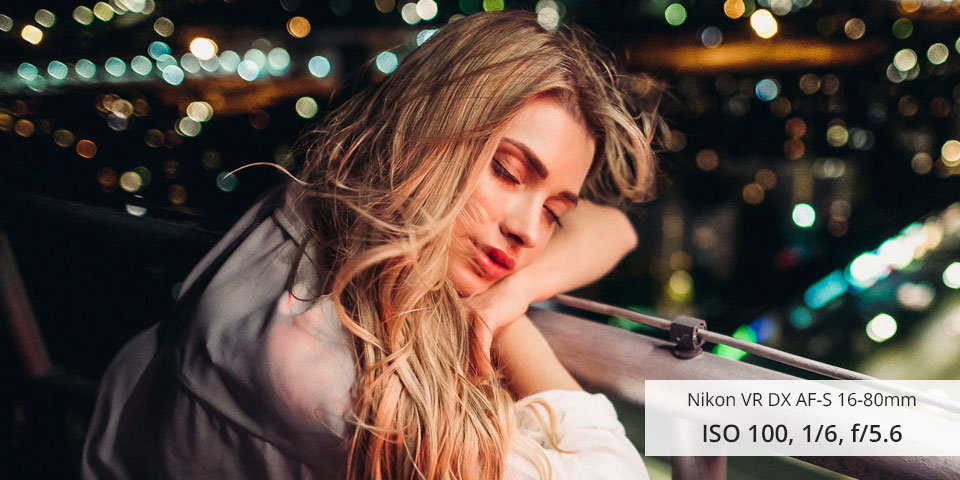
A nice bonus is its versatility, allowing you to realize any of your nightlife photography ideas, from portraits to landscapes. With it, you can be sure that you will get bright, vibrant photos of natural contrast without any glare and smudges, even in minimal light and outdoors. This lens can adjust the appropriate exposure and brightness for your scene.
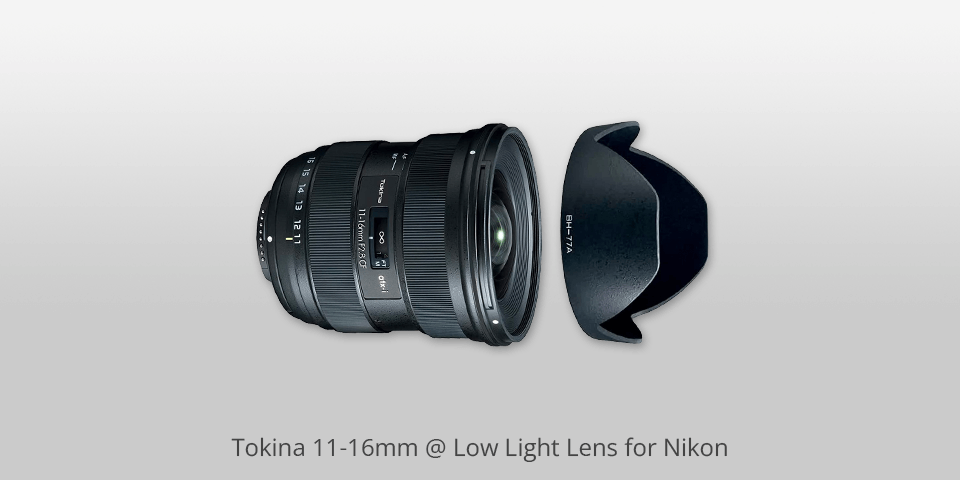
Maximum aperture: f/2.8 | Focal length: 11-16mm | Focusing distance: 1.0 ft | Angle of view: 84° | Item weight: 1.22 pounds
Another representative of Nikon low aperture lenses is Tokina 11-16mm f/2.8 wide-angle lens. Its incredible aperture takes your photos taken in the dark to a new level of quality and sharpness. I also want to point out its reliable and powerful autofocus, which works even in the dark and in a dynamic environment, making it a must-have for shooting wedding celebrations.
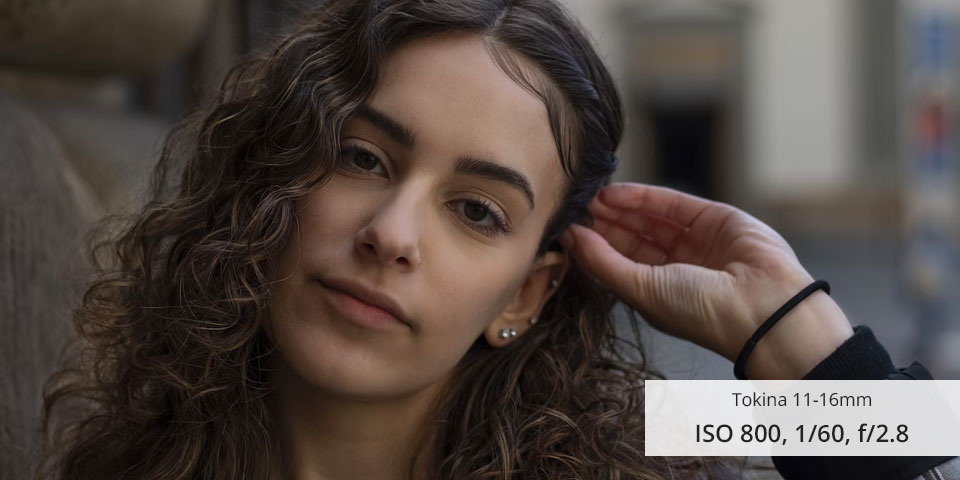
Its feature is versatility, allowing you to embody your most daring exterior and interior ideas as well as landscape and wildlife photography. In addition to night shooting, it also demonstrates excellent results when shooting indoors during the day in conditions of natural light from a window. I also like how it handles close-up shots taken in the dark in nightclubs.
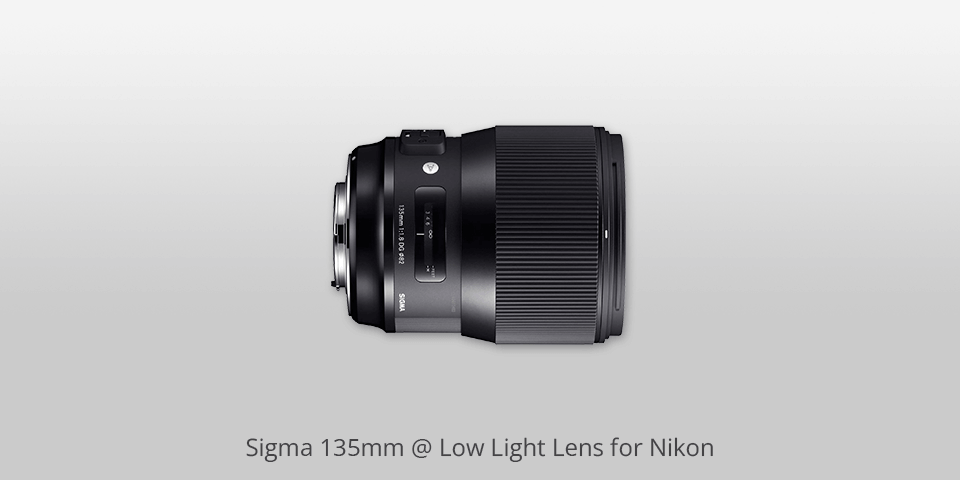
Maximum aperture: f/1.8 | Focal length: 135mm | Focusing distance: 4.92 ft | Angle of view: 18° | Item weight: 2 pounds
Being a part of the Art line and equipped with a fast aperture, this telephoto lens for Nikon boasts powerful high-res rendering even in dark conditions.
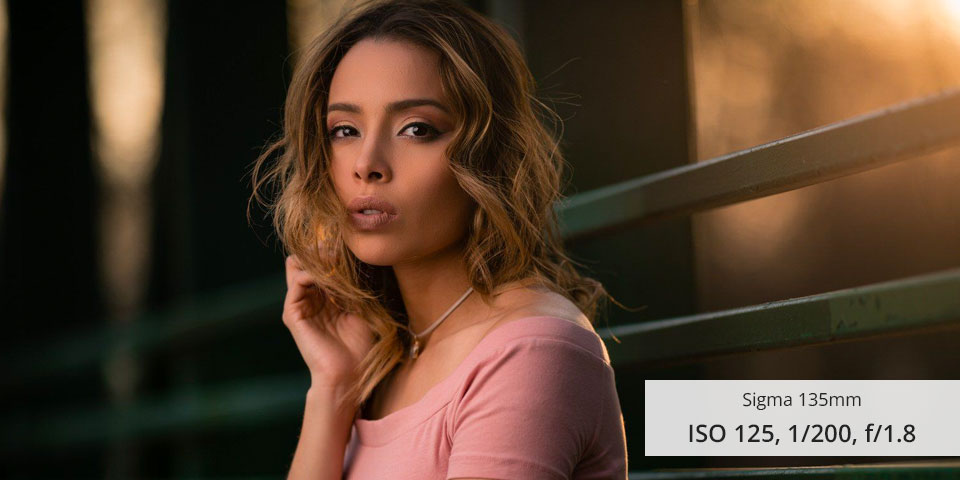
It produces clear and sharp photos without color fringing and all kinds of distortion caused by chromatic aberration, as it is made of SLD and FLD glass. I love how beautiful and natural bokeh I can get with this lens. This is achieved by reducing axial chromatic aberration, which also makes your photos sharper and crisper.
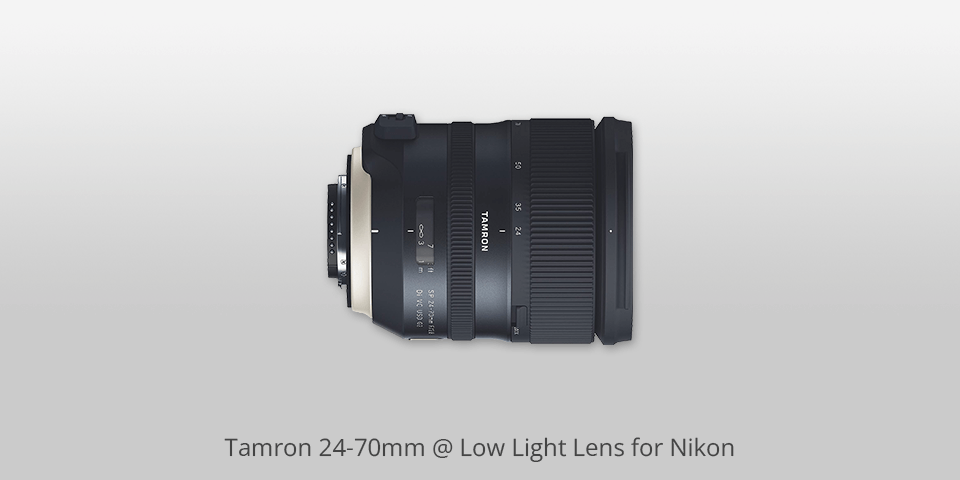
Maximum aperture: f/2.8 | Focal length: 24-70mm | Focusing distance: 1.25 ft | Angle of view: 60° | Item weight: 1.98 pounds
For photographers looking for a super zoom lens for Nikon, I suggest taking a closer look at the Tamron 24-70mm f/2.8. The clarity of the shots it produces in both light and dark is beyond praise, and the lightness and strength of the build combined with the rich feature set will surely make it your best Nikon lens for low light.
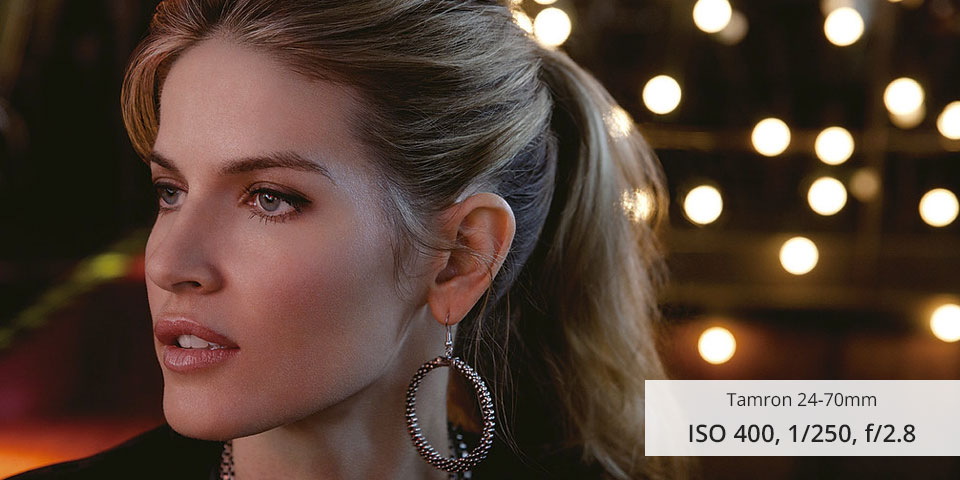
Users note that it is high-performance and pleases them with amazing image quality. Its nice ergonomic design accommodates decent zoom at all focal lengths from wide-angle to long telephoto. The lens is coated with a nano-metal material that prevents refraction and ghosting when photographing in the dark under challenging conditions.
| IMAGE | NAME | FEATURES | |
|---|---|---|---|

|
Nikon Nikkor AF-S 50mm
OUR CHOICE
|
CHECK PRICE → | |

|
Nikon AF-S NIKKOR 35mm
PROFESSIONAL
|
CHECK PRICE → | |

|
Nikon AF-S NIKKOR 85mm
BUDGET
|
CHECK PRICE → |
All low light lenses for Nikon are distinguished by their functionality and additional features. To choose your ideal option, explore the available features, which I have detailed below, and figure out what is right for you.

Light enters the camera’s sensor through an aperture that determines its amount. If you want to shoot at night or in the dark, then you need a wide aperture. For example, the Nikon AF-S NIKKOR 50mm offers f/1.8 which would be a great option.
This setting will allow you to shoot highly dynamic scenes at faster shutter speeds even without an additional tripod attachment. Another advantage of such lenses is the super attractive bokeh effect, which softly and flawlessly blurs the background of your shots, especially portraits.
For long photo shoots, it makes sense to think about your comfort so that your hands do not get tired. To do this, you need to take a closer look at lightweight lenses, such as the Nikon AF-S 50mm f/1.8.
It is also important that the lens is portable and compact. This is especially useful for those who shoot outdoors or at wedding events, for example. As a rule, a lightweight lens means compactness, so you don’t have to worry too much about lens sizes.
Low light photography often requires handheld shooting or shooting in dimly lit environments where a stable grip is essential. Opting for a lens that is compact and lightweight makes it easier to handle and maneuver, allowing you to maintain stability and reduce fatigue during extended shooting sessions.
Furthermore, a smaller and lighter lens offers greater portability and convenience, making it more practical for travel or on-the-go photography. It allows you to carry your camera equipment comfortably without adding unnecessary bulk or weight to your gear bag.
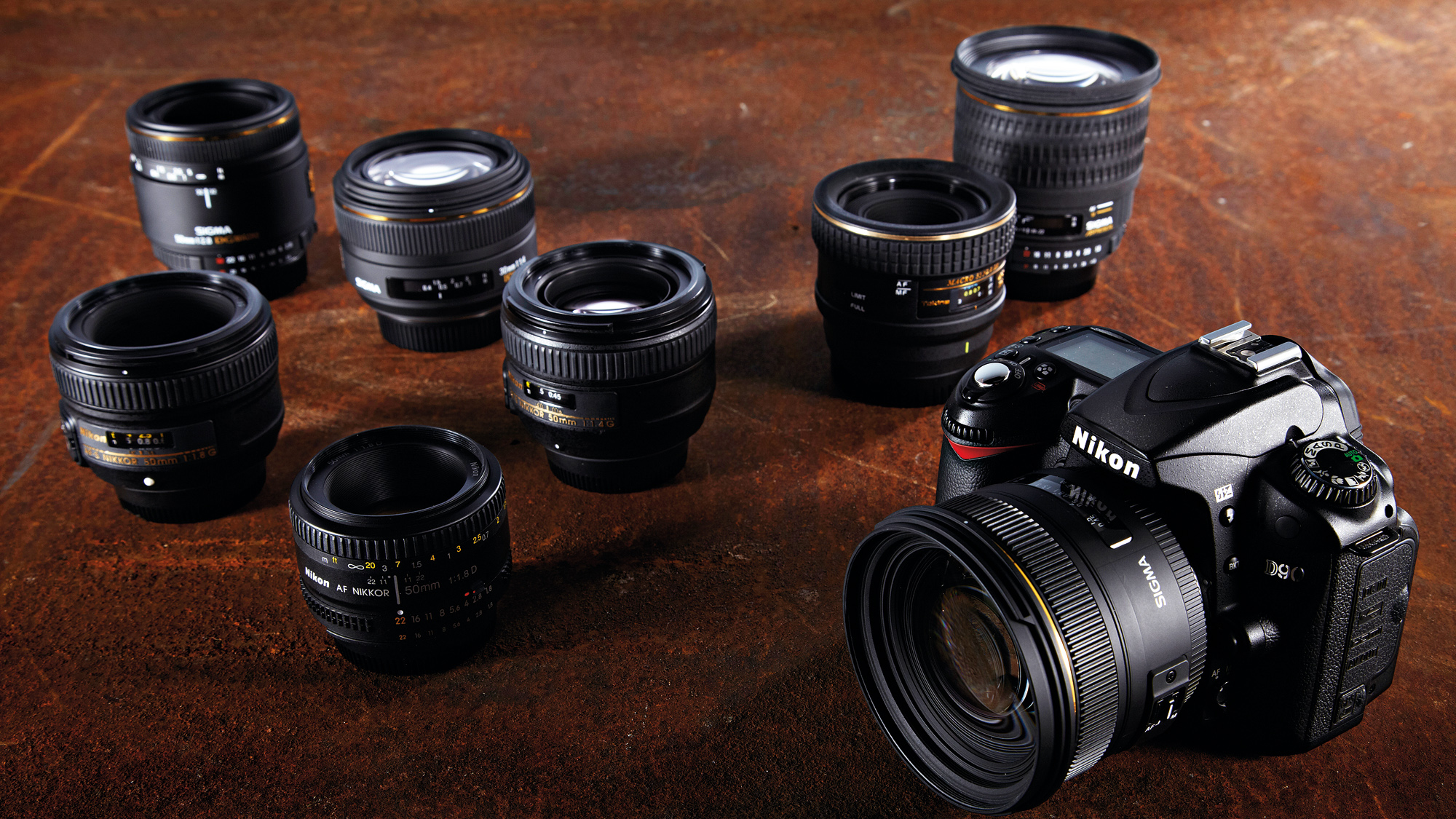
It is usually hard for us to notice dust or high humidity outdoors, but this is what can damage and ruin your lens. When shooting in low light, photographers often venture into diverse locations and encounter changing weather conditions. Having a weather-resistant lens allows them to focus on their craft without worrying about potential damage to their gear. It enables them to explore opportunities in adverse conditions, such as night photography during a light drizzle or capturing the Milky Way on a chilly night.
Furthermore, weather-resistant lenses contribute to the overall reliability of the camera system, as they work seamlessly with Nikon cameras that also offer weather sealing. This combination ensures optimal performance and minimizes the risk of malfunction or damage due to weather-related factors.
Indeed, the best low light lens for Nikon should come with protection from harsh weather conditions, so as not to disappoint you with an imminent breakage. The Sigma 35mm f/1.4 lens is just that – you can take it with you even to a desert or snowy scene.
The best Nikon lens for low light is not the only condition for beautiful and clear pictures taken in the dark. Also, try playing around with your camera settings. Pairing the right settings with a reliable lens will give you breathtaking images even in the darkest of times.
Yes, it’s the perfect value for your nighttime photo shoots and for astrophotography lenses. You can find higher-value lenses on the market, however, F/2.8 plus a higher ISO and a slightly slower shutter speed is the perfect combination.
A wider aperture and slower shutter speed will help to avoid graininess in the photo, compensating for the lower ISO. However, this is a good idea for still objects and scenes, as it will be harder for you to capture motion sharply.
To start, try 1 to 1/60 for your shutter speed. Even such a wide range can please you with decent exposure in the dark. Choose a shutter speed according to your scene.